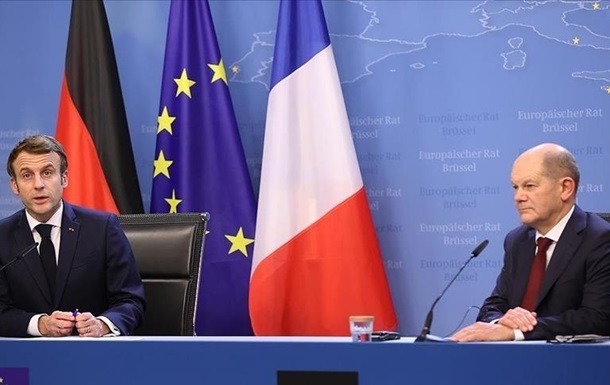French President Emmanuel Macron and German Chancellor Olaf Scholz: A Complicated Relationship
The relationship between French President Emmanuel Macron and German Chancellor Olaf Scholz has hit a rough patch, and this discord could have significant implications for Ukraine’s future. Recent reports from Bloomberg have revealed underlying tensions that warrant a closer look.
Calls for Increased Support for Ukraine
During a recent summit in Paris, Macron passionately advocated for an uptick in support for Ukraine. His call to action included the controversial suggestion of possibly deploying Western troops in the region—a proposal that doesn’t sit well with Scholz’s administration. This divergence in vision is not just a fleeting disagreement; it reflects a deeper rift regarding how Europe approaches its role in the Ukrainian crisis.
For instance, Macron’s criticism of allies who offered little more than «helmets and sleeping bags» starkly underscores his frustration with Germany’s hesitance. Such comments have sparked debate about Europe’s commitment to solidarity in the face of aggression. In contrast, Scholz has adopted a more cautious approach, aiming to balance German interests and the broader European strategy.
Perceptions and Misunderstandings
The media narrative suggests that Macron views Scholz as lacking the political ambition required to envision long-term strategies for Europe. A French official, quoted anonymously, noted that Macron believes Scholz embodies a short-sighted leadership style. This contrast in leadership philosophies not only complicates their personal rapport but could also hinder the collective European response to crises such as the one in Ukraine.
According to a survey conducted by the European Council on Foreign Relations, public opinion in Germany regarding military assistance to Ukraine has shifted. As of late, over 60% of Germans have expressed support for increased military aid. However, Scholz’s administration continues to tread carefully, aiming to maintain domestic stability while responding to international pressures.
Different Visions and Future Collaborations
The tension doesn’t solely reside within Macron and Scholz’s relationship; it also reflects broader debates on the European stage. In fact, a spokesperson from the German government indicated that the discord might stem more from Macron’s readiness to embrace bold initiatives rather than a direct conflict between the two leaders. Instead, other European leaders reportedly viewed Macron’s rhetoric as reckless, raising questions about the direction of European unity.
«Regardless of their differences, both leaders share a commitment to European ideals,» reassured the government official, suggesting that beneath their disagreements lies a foundation of mutual trust. This aspect is crucial as it hints at potential pathways for cooperation, even amidst discord.
Conclusion: Navigating Challenges Ahead
As the situation in Ukraine remains precarious, the discord between Macron and Scholz could have significant ramifications not only for military aid but also for the overall unity of the European response. It highlights the pressing need for leaders to bridge their differences and collaborate more effectively for the sake of European stability.
Moving forward, it’s essential for both leaders to harness their strengths: Macron’s bold, visionary approach could be balanced with Scholz’s pragmatic caution. The challenges are immense, but so are the opportunities for transformation. Only time will tell whether these two leaders can find common ground to navigate the turbulent waters ahead.






